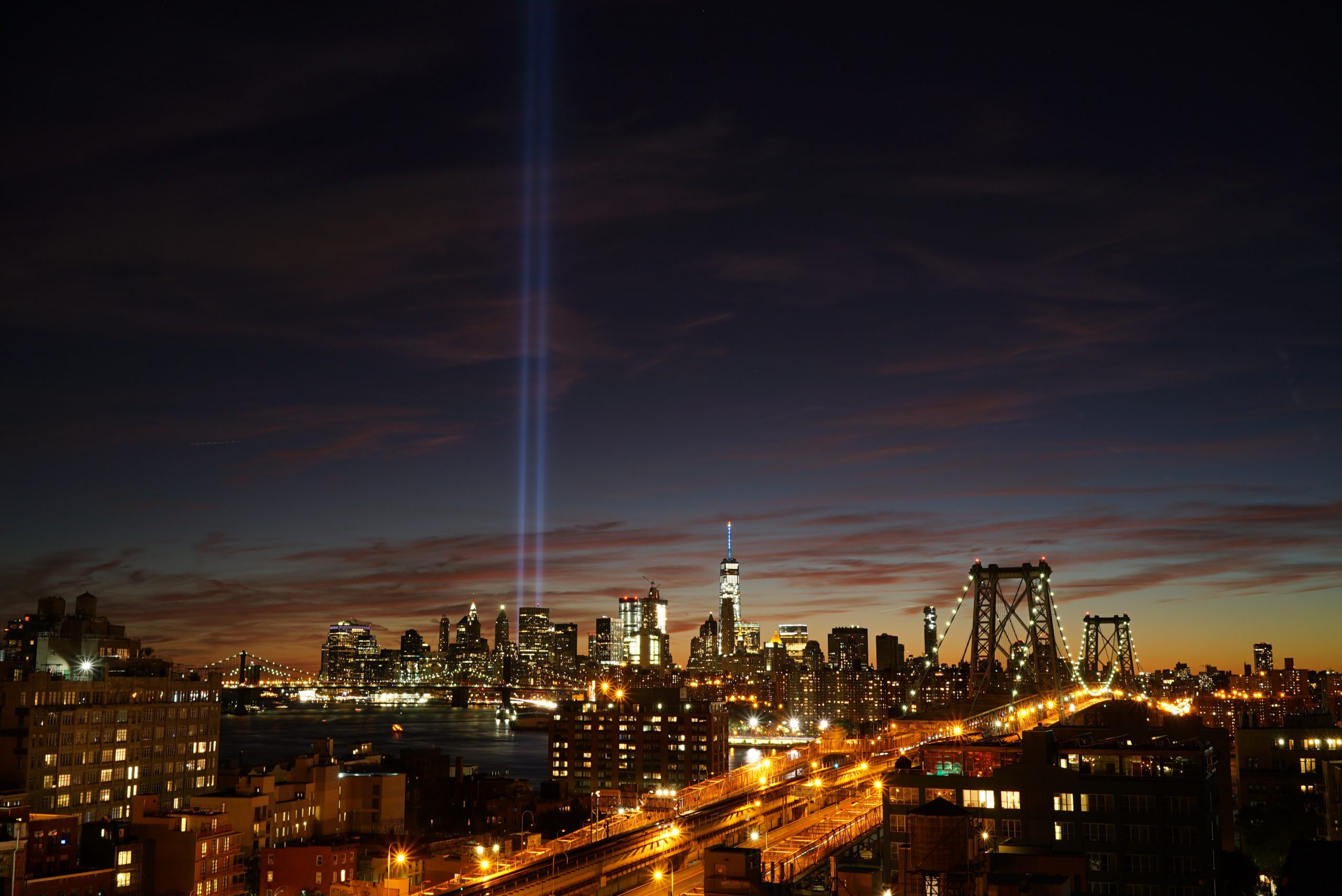Twenty years ago, the world changed forever. The effects of September 11 were immediate and profound. Thousands of lives were lost. Countless plans were upended. And in an instant, air travel changed.
September 11 was not only a day of terrible tragedy and national mourning. It was also a day that demonstrated how complex systems, especially our transportation system, must confront change.
Airport security and identification requirements, implemented shortly after, meant that passengers were suddenly required to set aside several hours before arriving at an airport. The shift away from air travel due to safety or security concerns also had ripple effects. For instance, a study conducted by researchers at Cornell and Indiana University Bloomington observed an immediate and significant uptick in motor vehicle crashes in the years following September 11.
Now, as the world continues to recover from the travel impacts and ripple effects caused by the COVID-19 pandemic, it is important to remember that systems—and people—rebound. This resiliency of the human spirit is what propels us forward and enables us to see beyond the challenges of the present. The following are personal perspectives on September 11 and its aftermath as told by RSG President Tom Adler and RSG CEO Stephen Lawe.
Tom Adler, President
On the morning of September 11, I was at a meeting in Pittsburgh with a review panel for a maglev project to connect downtown Pittsburgh with the airport. The panel included staff from the US Department of Transportation, academics, bankers, and project proponents. We were in a van on our way to a meeting room near downtown Pittsburgh when one of the bankers heard about the first plane hitting the tower from a colleague who worked in the World Trade Center.
By the time we got to the meeting room, it became clear that this was not an accident. By this time, we had also heard that a second plane hit the World Trade Center, and another had hit the Pentagon. And that another was still in the air in Pennsylvania. One of our Pittsburgh clients was concerned that it was going to strike downtown Pittsburgh. That plane, which was also destined for Washington, DC, crashed in a field in Pennsylvania, brought down by its passengers.
Amid this unfolding tragedy that affected each of us, there I was in Pittsburgh with a group of transportation experts trying to figure out: a) how this would affect the world, particularly air travel, and b) how we all would get home. We were pretty good at b): those of us from the Northeast managed to find a van and vanpooled home. And we had a lot of conversations about a), though I can’t say that we foresaw everything that happened in September 11’s wake. Increased air security clearance requirements? Yes. Increased security clearance time causing shifts to personal vehicles for shorter trips? Also, yes. The relatively rapid return to a “new normal” and to airline/airport prosperity? No.
As a transportation planning firm, RSG responded at the time by working to create a far more granular portrayal of changes in air travel. We decided to continue our Air Traveler Survey that we began in 2000. This continued as a roughly biennial effort through the year 2012. The results of this work were used by airlines, airports, and academics to document and plan for subsequent changes in air travel patterns.
When the COVID-19 pandemic effectively shut down air travel last spring, RSG was again working with several airports on their planning efforts for major air traveler surveys. In May 2020, we decided to launch an analogous effort to the one we undertook after September 11. The findings from this work are helping our clients better manage and plan for both shorter- and longer-term COVID-19-related air travel behavior changes that surpass those seen following September 11.
Many airport projects were shut down and remain in abeyance as air travel recovers. As in the months and years following September 11, we can already observe some longer-term effects emerging as a result of the pandemic, such as reductions in current and projected future business travel. But air travel has proven its resiliency several times in the past two decades.
I expect that we will see a similarly rapid return to air travel once the virus recedes. However, as was the case after 9/11 and as evidenced in our work to date with the COVID-19 Travel Insights Survey, I also expect some important, lasting changes in the characteristics of that travel.
Stephen Lawe, CEO
In 2001, I was a frequent flyer, enjoying in-person visits with our staff and clients around the country. I was fortunate, however, to be on the ground at our offices in Vermont on September 11. I worried about loved ones, watching as the horrific events unfolded. We were trying to reach Tom Adler and others who were traveling—a few of whom were flying at the time. Despite the confusion of that day, I remember being amazed at the professional and heroic response that ensued.
At RSG, we look at events in the context of a broader system. Events like September 11 are immediate and impactful. Our world view changed in an instant. Other events sneak up on us. These also have an impact far beyond anything we could have expected, such as the pandemic. Still other events have a slower gestation period but quite possibly the same global impact, such as climate change. And, of course, there are the myriad technological innovations that are changing our lives substantively each day.
Which of these events will have a lasting impact on the way we live our lives? And what can we do in response as policymakers, business leaders, philanthropists, scientists, or interested individuals? After September 11, I distinctly recall a strong sense of patriotism and civic duty dominating our response. Americans were undeterred by the threat.
The pandemic has elicited a decidedly different and more nuanced response. This is perhaps because the threat is invisible and there is no enemy. We have an even more nuanced response to climate change even as the scientific consensus continues to point to the dire consequences of not acting swiftly. In some respects, it is climate change's nearly imperceptible daily change that confounds our ability to act.
The horrific events of September 11 prompted a series of rapid changes in travel. Many of these changes are with us to this day. Now, 20 years later, technological changes underway promise to create additional disruptions. Automation, vehicle electrification, or any number of pressing trends all necessitate future planning. We need to understand not just the future but the impactful transitions that will occur along the way. And we need to act while we still have options.
We will never forget September 11. The pain and suffering it caused, and the way it transformed our world and industry in an instant. In remembering the events and aftermath of that day, let’s also consider how we can collectively prepare for other challenges we confront. It is my sincere belief that we can tap into that same unity we witnessed on September 12. It is only through this shared sense of purpose that we can meet the challenges of today and tomorrow.




